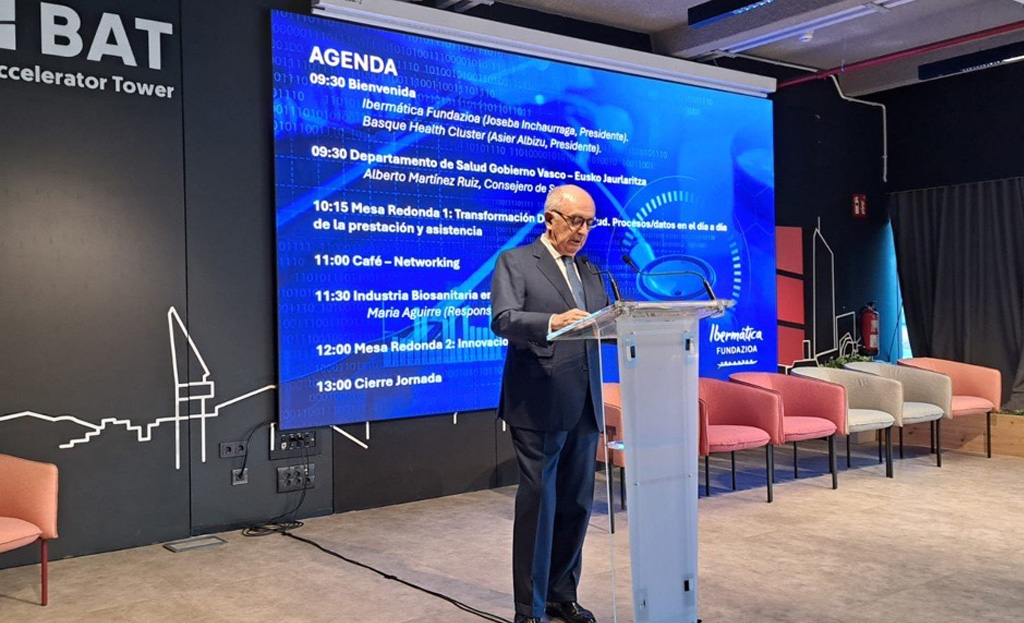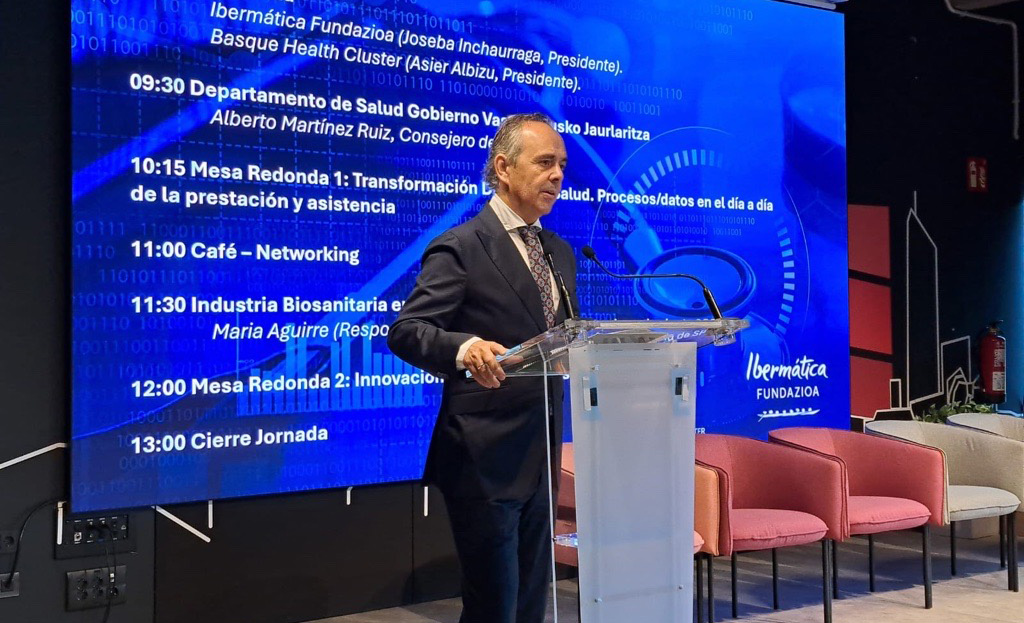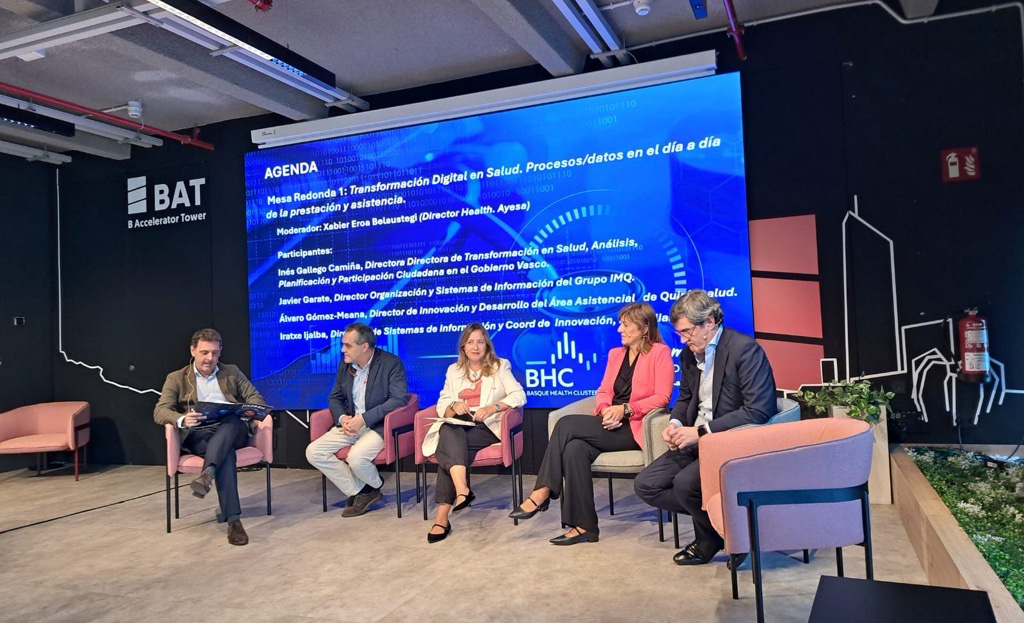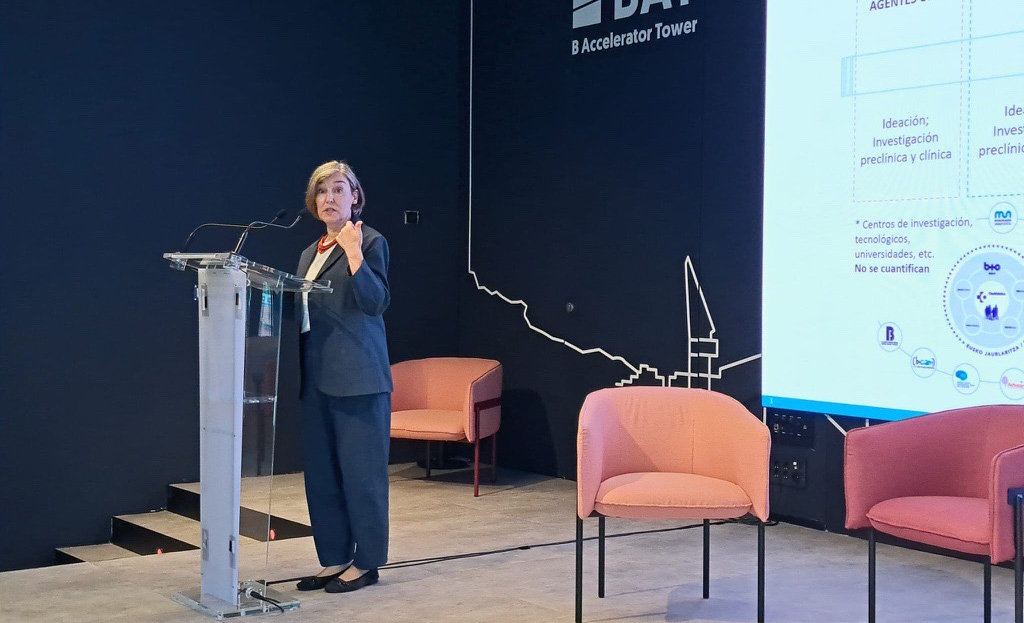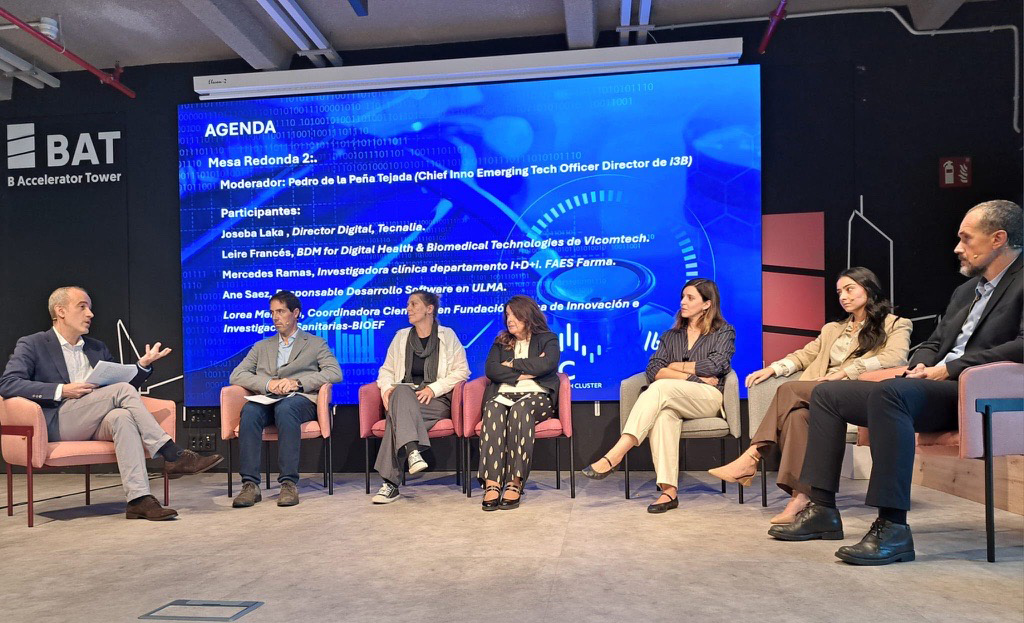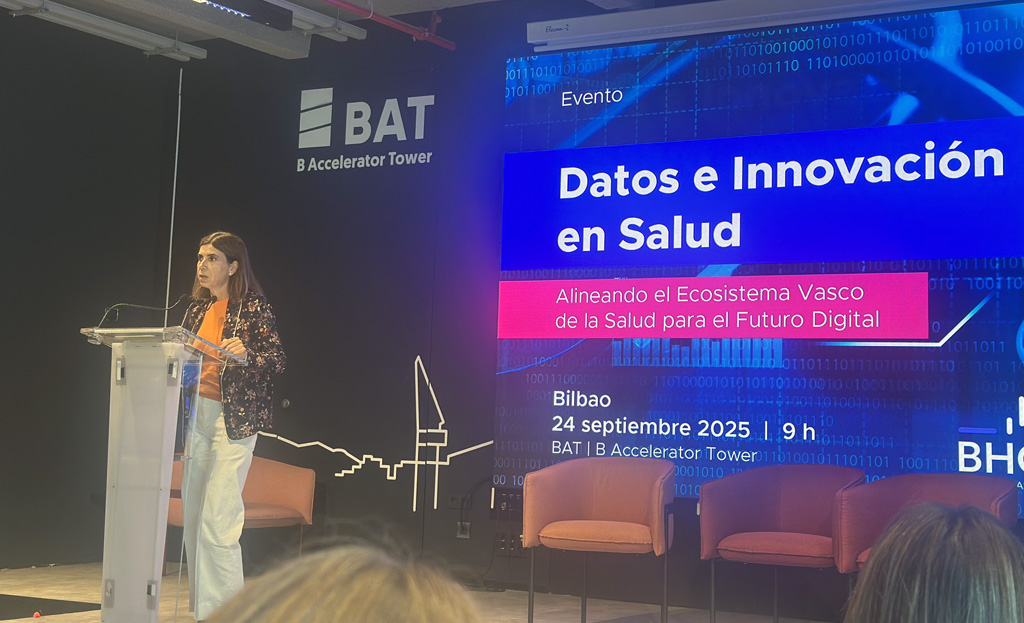September 24, 2025
Ibermática Fundazioa positions innovation and digital transformation as pillars of the healthcare system of the future
It considers them “essential” for creating a more resilient sector, capable of optimizing available resources and addressing key challenges such as population aging, chronic diseases, and the growing demand for personalized services.
Ibermática Fundazioa, in collaboration with the Basque Health Cluster, organized the event ‘Data and Innovation in Health: Aligning the Basque Health Ecosystem for the Digital Future’, which explored the critical role that the data-innovation combination will play in the future of healthcare. A future focused on greater efficiency, improved patient care, optimized resource management through digitalization, and the development of a business ecosystem centered around data utilization.
The event brought together leading healthcare service providers within the Basque Health Ecosystem—key buyers and suppliers of health data—alongside the broader business, technological, and scientific community, including companies, technology centers, SMEs, and startups.
“This combination reflects the diversity and strength of our value chain and is driven by a clear objective: to strengthen collaborative relationships, share knowledge, and generate opportunities that accelerate the sector’s transformation”, said Joseba Inchaurraga, President of Ibermática Fundazioa.
According to Inchaurraga, “Innovation and digital transformation have become essential pillars for building a more resilient healthcare system—one that can better optimize available resources and address challenges such as an aging population, chronic illness, and increasing demand for personalized services. But reacting is not enough; we must anticipate change. All stakeholders must work together to design new models of collaboration and accelerate the adoption of technologies that position the Basque Health Ecosystem as a leader not only locally, but also at the national and European level”.
The Basque Government’s commitment
The Basque Minister of Health, Alberto Martínez, also took part in the event, describing it as an important step “toward a healthcare system that is increasingly connected, efficient, and human.” He emphasized that the government’s primary goal is to “prepare the Basque Country to face tomorrow’s health challenges through the intelligent and responsible use of data and innovation”.
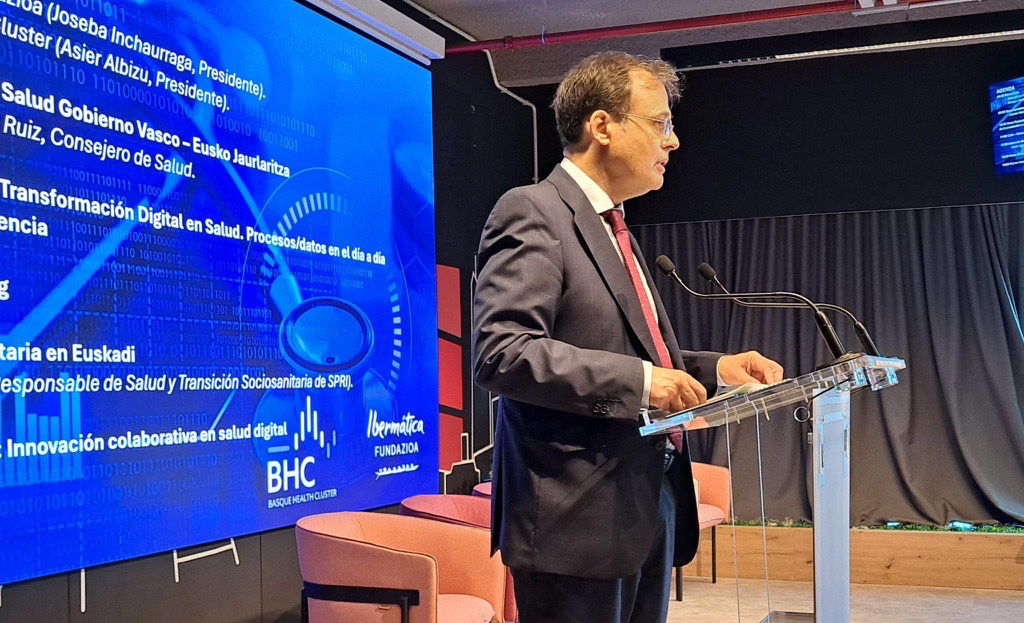
Martínez presented several key strategic lines to achieve this vision, including the creation of the new Basque Health Data Space.
A central element of this project will be the Health Data Access Office, which will ensure that data usage is safe, transparent, ethical, and responsible—avoiding bias and discrimination—and valuable both for clinical care and health research and innovation.
The Basque Health Data Space will be governed by principles aligned with European standards:
- Data sovereignty: Each citizen will control their own data.
- Privacy and security: Maximum protection against misuse.
- Data quality and interoperability: Reliable, accessible, and comparable data.
- Ethics and equity: Responsible, inclusive, and fair use.
- Responsible innovation: Integration of technologies such as Artificial Intelligence (AI) under strict ethical, transparent, and secure criteria.
This initiative is not being developed in isolation—it directly connects to two existing programs: Osakidetza’s Artificial Intelligence Guide, a pioneering document that outlines how to implement AI in healthcare based on principles of safety, transparency, human oversight, and respect for patient rights—“as a support tool for professionals, not a replacement—freeing them from repetitive tasks and enhancing direct patient care”.
DATUA, Osakidetza’s Data Office, created to govern and manage health data in the Basque Country. It plays a critical role in establishing clear rules for data access, quality, and interoperability. “Its mission is to ensure that data serves both healthcare delivery and research, and to act as a bridge between the health system, academia, and the tech sector”.
“In short, the Basque Country has a clear roadmap toward a healthcare ecosystem aligned with international best practices, with the European strategy, and with the ambition to ensure that every data point counts, every investment generates impact, and every innovation results in tangible improvements”, Martínez concluded.
The event continued with a roundtable titled “Digital Transformation in Healthcare: Processes/Data in Everyday Care and Service Delivery”, featuring: Xabier Eroa, Health Director at Ayesa; Inés Gallego, Director of Health Transformation: Analysis, Planning, and Citizen Participation, Basque Government; Javier Garate, Director of Organization and Information Systems at IMQ Group; Álvaro Gómez–Meana, Director of Innovation and Development, Healthcare Area at Quirónsalud; e Iratxe Ijalba, Director of Information Systems and Innovation Coordinator at Mutualia.
Next came the presentation “The Biosanitary Industry in the Basque Country” by María Aguirre, Head of Health and Social Transition at SPRI, followed by the second roundtable “Collaborative Innovation in Digital Health: Connecting Capabilities to Transform the System”, which included: Pedro de la Peña, Chief Inno Emerging Tech Officer, i3B (R&D unit at Ayesa); Joseba Laka, Digital Director at Tecnalia; Leire Frances, BDM for Digital Health & Biomedical Technologies at Vicomtech; Iban Arriola, Head of the Health Sector at Tekniker; Mercedes Ramas, R&D Department, Faes Farma; Ane Saez, Software Development Lead at ULMA; y Lorea Mendoza, Scientific Coordinator, Basque Foundation for Health Innovation and Research (BIOEF).
The event concluded with closing remarks from Itziar Cuenca, General Director of Ibermática Fundazioa.
We support your projects
We are here for you, to advise you personally and offer you the product you need.
